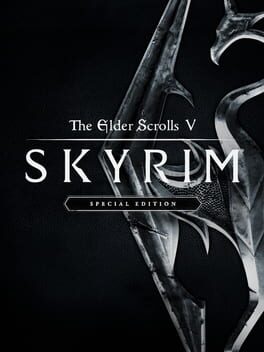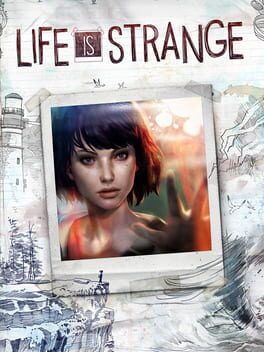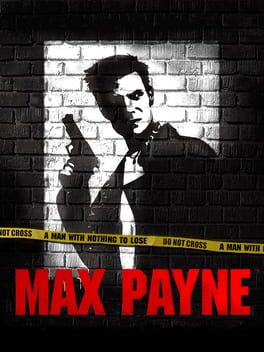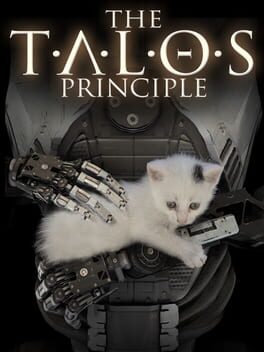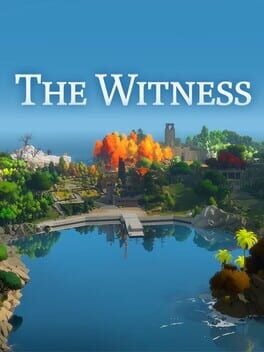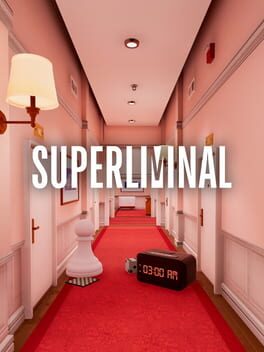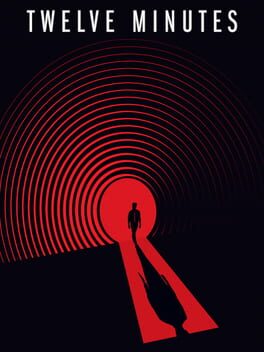odoital
208 Reviews liked by odoital
When you grow up having a tumultuous relationship with your parents, houses become distorted. Creaking floorboards and door handles, rustling keyholes, deep sighs and stares, tones of voice. All signals your brain receives as alarms. Danger. Be quiet. Poke your head into the hallway, but don't be seen. Rest your ear in the door and listen closely. Don't come out.
The house the Finch family lived in is empty, but also isn't. There's no one here, but some things remained. Their favorite things: be they toys, trophies, or photos. Their history is embedded into every wall of the house, sometimes even their deaths are etched into its architecture.
I have lived in many places throughout my life, unlike the Finch family. But still, things remained. I look back to all the houses I've lived in and yet everything feels the same, because I remember what remained. Because it followed me to every house. It lives in the creaking floorboards and rustling keyholes. It lives in the stares and the sighs. Because a house, a home, is not just somewhere you live in. It transcends the physical plane and becomes something much more abstract and hard to explain. I feel like I have always lived in the same house, even though that's not the case. They begin to blend in my mind as a towering structure constructed by memories that feel too familiar.
When you're a kid, the relationship between your parents and grandparents can seem a little whimsical. But when you start growing up, you begin to see the cracks. You see the lies, you see the fighting, and little kid tears just can't fix it anymore. And eventually, the big fight breaks out and you choose a side. Things change forever. You start to learn more of the history of your mom's life. You learn about the abuse, and of the things that remained and eventually escalated into this new reality you've been trust into.
And as time goes by, things get worse. And when things get worse, you start to see what remained with your own eyes, because it's happening to you. The fighting, the screaming, the belittling. Except you're not the observer anymore.
You try getting tough. You also begin to lie and scream and fight.
You try to make distance. To avoid small talk or eye contact all together.
You think you're gonna be different, that you won't be like that.
But you start doing this with the wrong people. To people you love and care about. And this is where the "curse" is born. It takes form out of that cyclical abuse and begins to seep into everything you do. It molds your life into a nightmare and you become convinced. You start to believe there is a curse, that this is how it's gonna play out no matter what. That how you are is predestined: if everyone else couldn't beat it, how could you? The curse takes a hold of you. And it won't let go.
But something eventually happens. There's a change for the better. Maybe life at home is better, we who remain start working out the issues, maybe we find solace in others and we start to realize it doesn't have to be like this. It never had to be.
Our life doesn't have to be dictated by who our parents are, who they think we have to be, or any stupid "curse". The cycle can be broken, be it by our parents or us. And when we break it, what matters is what we leave behind. What remains.
The house the Finch family lived in is empty, but also isn't. There's no one here, but some things remained. Their favorite things: be they toys, trophies, or photos. Their history is embedded into every wall of the house, sometimes even their deaths are etched into its architecture.
I have lived in many places throughout my life, unlike the Finch family. But still, things remained. I look back to all the houses I've lived in and yet everything feels the same, because I remember what remained. Because it followed me to every house. It lives in the creaking floorboards and rustling keyholes. It lives in the stares and the sighs. Because a house, a home, is not just somewhere you live in. It transcends the physical plane and becomes something much more abstract and hard to explain. I feel like I have always lived in the same house, even though that's not the case. They begin to blend in my mind as a towering structure constructed by memories that feel too familiar.
When you're a kid, the relationship between your parents and grandparents can seem a little whimsical. But when you start growing up, you begin to see the cracks. You see the lies, you see the fighting, and little kid tears just can't fix it anymore. And eventually, the big fight breaks out and you choose a side. Things change forever. You start to learn more of the history of your mom's life. You learn about the abuse, and of the things that remained and eventually escalated into this new reality you've been trust into.
And as time goes by, things get worse. And when things get worse, you start to see what remained with your own eyes, because it's happening to you. The fighting, the screaming, the belittling. Except you're not the observer anymore.
You try getting tough. You also begin to lie and scream and fight.
You try to make distance. To avoid small talk or eye contact all together.
You think you're gonna be different, that you won't be like that.
But you start doing this with the wrong people. To people you love and care about. And this is where the "curse" is born. It takes form out of that cyclical abuse and begins to seep into everything you do. It molds your life into a nightmare and you become convinced. You start to believe there is a curse, that this is how it's gonna play out no matter what. That how you are is predestined: if everyone else couldn't beat it, how could you? The curse takes a hold of you. And it won't let go.
But something eventually happens. There's a change for the better. Maybe life at home is better, we who remain start working out the issues, maybe we find solace in others and we start to realize it doesn't have to be like this. It never had to be.
Our life doesn't have to be dictated by who our parents are, who they think we have to be, or any stupid "curse". The cycle can be broken, be it by our parents or us. And when we break it, what matters is what we leave behind. What remains.
I used to be a lore guy.
I used to get so caught up in the specifics of details interlocking and having causal relationships to each other. Skyrim has none of that. Instead it has vibes. It's all vibes. When I was younger I tried to dig too deep and was resentful of what wasn't there. I'd kit it out with a billion mods and try to make it something it wasn't. Some games that could loosely be thrown in the same genre - New Vegas, Disco Elysium, Baldur's Gate, are novels with added dimension. Their art is text; the game around them is just their interface. In this realm, Skyrim cannot compare. But why would it? It's not literature, it's a virtual diorama. It's a gorgeous landscape accompanied by the beautiful soundtrack of Soule that, somehow, no matter the angle, is always serene and mystical.
I convinced myself I despised it, yet every few years I boot it up and go for a lovely little stroll around a familiar old countryside. There's a reason this has become such a totemic piece of culture.
I used to get so caught up in the specifics of details interlocking and having causal relationships to each other. Skyrim has none of that. Instead it has vibes. It's all vibes. When I was younger I tried to dig too deep and was resentful of what wasn't there. I'd kit it out with a billion mods and try to make it something it wasn't. Some games that could loosely be thrown in the same genre - New Vegas, Disco Elysium, Baldur's Gate, are novels with added dimension. Their art is text; the game around them is just their interface. In this realm, Skyrim cannot compare. But why would it? It's not literature, it's a virtual diorama. It's a gorgeous landscape accompanied by the beautiful soundtrack of Soule that, somehow, no matter the angle, is always serene and mystical.
I convinced myself I despised it, yet every few years I boot it up and go for a lovely little stroll around a familiar old countryside. There's a reason this has become such a totemic piece of culture.
The Beginner's Guide
2015
This review contains spoilers
So, this is my favorite game of all time and I can’t talk about how much I appreciate it without spoiling it. It takes an hour and a half to complete and is only $10 on Steam, and I've seen it go down to $4 before. Please go play this one before reading, I obviously think it’s worth it. Okay, here I go:
This is probably not the game most people would consider as having great gameplay, but I’m going to make my case for this having the most interesting gameplay I’ve experienced in a game. About 95% of this game’s mechanics consist of simply walking around some levels while a narrator talks. But it’s the different ways in which the game can alter how you can walk around and use that to effect what the player is feeling and effectively communicate different messages to the player that is so damn creative. This is the game I point to whenever someone tries to say that “walking simulators aren’t real video games” because this game proves that with just the mechanic of walking through a level, you can communicate so many ideas to the player, in a way that couldn’t be done in any other medium. There are also occasional bits of dialogue choices and shooting and one puzzle that is just an incredible metaphor. This game, in an hour and a half, is bursting with so many creative ideas on how to use the medium of video games, more than any other game I can think of.
Okay, let’s get into some of the ideas this game is playing with here. First, it’s worth noting that a part of this game’s narrative is that you can’t ever actually know what the author of any given work is trying to say, unless they explicitly tell you what they’re trying to say. I highly recommend watching Innuendo Studios’ video about The Beginner’s Guide for an exploration of that idea. That being said, here’s my interpretation of the game: The game is presented as the narrator, Davey Wreden (who is also the developer), takes you through a collection of experimental games made by his friend Coda. As you get further and further into Coda’s games, the games start delving into darker ideas dealing with Coda losing his creativity and developing depression. Where the ideas used to flow so naturally to him, they’ve just stopped coming, and it’s getting harder and harder for him to keep making games. Davey begins the game so proud and inspired by Coda’s work, and in the later bits he’s understandably worried about his friend because of the messages he’s getting from his later games. While Davey shows off Coda’s work to the player, there are certain bits he’ll skip you past, or speed up, so that the player can get on with the rest of the game. Davey has an idea when playing Coda’s later games to start showing Coda’s work to people, to show Coda how much people love his work, to give him some positive feedback to keep going. Then, at the end of the game, there’s a twist, one last game that Coda makes for Davey specifically. In that game, Coda tells Davey that he doesn’t want to be friends anymore, that he was fine, and hated how Davey was projecting a negative image onto Coda himself, when he played Coda’s games; and how Coda felt violated when Davey kept showing his work to people without his permission. At this point as the player, I felt pretty dirty, like I was tricked into violating Coda’s privacy by Davey by playing this game. Afterwards, I just sat and thought about the game for a while, and realized that Coda isn’t a real person. That’s the other twist. Coda is, in my interpretation, a metaphor for the more introverted and artistic side of Davey. And after realizing that, I had to immediately play the game a second time, and suddenly everything Davey was saying took on a new meaning.
I 👏 love 👏 the 👏 puzzle 👏 in 👏 this 👏 game 👏. The way that Davey interprets the puzzle as a space between moments in your life, where you can stop and reflect for a while before moving on, but you must always, inevitably, move on, or you just get stuck in this dark place and stagnate. But we see in the house cleaning game, that Coda doesn’t agree with this. The way Coda originally made the house cleaning game, he was content to stay in the house forever, as if to say, it’s okay to find a place you’re comfortable in and stay there. Exiting the house was something that Davey added to Coda’s game. He viewed it as a flaw in the game that he was fixing. I honestly think there’s value in both of those views on the puzzle metaphor.
Another thing Davey changes in Coda’s games are the lamp posts he adds. Coda is fine letting his games be experimental, be endless. But Davey feels the need to add these lamp posts as a goal to work towards, he feels the need to influence Coda’s work and add a structure that Coda was happy without. Davey also feels the need to show Coda’s work to others. I read these as meaning that there is an internal conflict in Davey, between a part of himself which needs external validation, and needs to make games in a way that other people will like; while Coda, his more introverted self, is more happy with making games just for himself, as a way to have some introspection and explore ideas without having to worry about what other people think of it. Coda doesn’t want to give his games away, his games are for him. I recommend clicking this link and reading Davey Wreden’s blog post “Game of the Year” in which he talks about his depression during the time when The Stanley Parable was winning awards, and how he felt like he lost a sense of ownership when he released that game. It sheds a light on the internal conflict of this game. Here’s the link: http://web.archive.org/.../http://www.galactic-cafe.com/
In Coda’s later games, the machine which allows him to make games stops working. It’s revealed that the machine is Coda, and it’s put on trial for letting down the public. This, to me, is clearly Davey saying that he’s losing touch with the part of himself that is willing to take creative risks, and make personal works of art that are meaningful to himself first and foremost. And he feels a sense of shame for letting down people around him when he fails to create like this. The last puzzle in the game is my favorite moment in any game. It’s the moment after Davey gets Coda’s message about how he doesn’t want to be friends anymore, and he wishes that Davey would stop altering his work, and stop violating his privacy. In that puzzle room, there is no second lever to exit the puzzle with. It forces Davey to stay in the room, and contemplate what he’s done. And in that room, Davey begs for Coda to come back, and give him the sense of wholeness that came to Coda so effortlessly. Stuck in this dark room with no escape, Davey says that he’s fading, and just wants to know that it will be okay. Davey feels that he’s lost touch with this part of himself, and this whole game is him expressing his desire to reestablish a connection with that part of himself. And then the brilliantly executed epilogue, walking through Coda’s works, and moving forward through other levels with nothing to interact with, and no more narration, just left to digest everything that just happened. And then you walk into this pillar of light and get the final shot of the game, floating upwards and looking down on this massive labyrinth that consumes everything, and makes you feel so small in comparison. Makes you contemplate the enormous complexities of a person that you could never see before, and how small we can feel when confronted with that.
This is probably not the game most people would consider as having great gameplay, but I’m going to make my case for this having the most interesting gameplay I’ve experienced in a game. About 95% of this game’s mechanics consist of simply walking around some levels while a narrator talks. But it’s the different ways in which the game can alter how you can walk around and use that to effect what the player is feeling and effectively communicate different messages to the player that is so damn creative. This is the game I point to whenever someone tries to say that “walking simulators aren’t real video games” because this game proves that with just the mechanic of walking through a level, you can communicate so many ideas to the player, in a way that couldn’t be done in any other medium. There are also occasional bits of dialogue choices and shooting and one puzzle that is just an incredible metaphor. This game, in an hour and a half, is bursting with so many creative ideas on how to use the medium of video games, more than any other game I can think of.
Okay, let’s get into some of the ideas this game is playing with here. First, it’s worth noting that a part of this game’s narrative is that you can’t ever actually know what the author of any given work is trying to say, unless they explicitly tell you what they’re trying to say. I highly recommend watching Innuendo Studios’ video about The Beginner’s Guide for an exploration of that idea. That being said, here’s my interpretation of the game: The game is presented as the narrator, Davey Wreden (who is also the developer), takes you through a collection of experimental games made by his friend Coda. As you get further and further into Coda’s games, the games start delving into darker ideas dealing with Coda losing his creativity and developing depression. Where the ideas used to flow so naturally to him, they’ve just stopped coming, and it’s getting harder and harder for him to keep making games. Davey begins the game so proud and inspired by Coda’s work, and in the later bits he’s understandably worried about his friend because of the messages he’s getting from his later games. While Davey shows off Coda’s work to the player, there are certain bits he’ll skip you past, or speed up, so that the player can get on with the rest of the game. Davey has an idea when playing Coda’s later games to start showing Coda’s work to people, to show Coda how much people love his work, to give him some positive feedback to keep going. Then, at the end of the game, there’s a twist, one last game that Coda makes for Davey specifically. In that game, Coda tells Davey that he doesn’t want to be friends anymore, that he was fine, and hated how Davey was projecting a negative image onto Coda himself, when he played Coda’s games; and how Coda felt violated when Davey kept showing his work to people without his permission. At this point as the player, I felt pretty dirty, like I was tricked into violating Coda’s privacy by Davey by playing this game. Afterwards, I just sat and thought about the game for a while, and realized that Coda isn’t a real person. That’s the other twist. Coda is, in my interpretation, a metaphor for the more introverted and artistic side of Davey. And after realizing that, I had to immediately play the game a second time, and suddenly everything Davey was saying took on a new meaning.
I 👏 love 👏 the 👏 puzzle 👏 in 👏 this 👏 game 👏. The way that Davey interprets the puzzle as a space between moments in your life, where you can stop and reflect for a while before moving on, but you must always, inevitably, move on, or you just get stuck in this dark place and stagnate. But we see in the house cleaning game, that Coda doesn’t agree with this. The way Coda originally made the house cleaning game, he was content to stay in the house forever, as if to say, it’s okay to find a place you’re comfortable in and stay there. Exiting the house was something that Davey added to Coda’s game. He viewed it as a flaw in the game that he was fixing. I honestly think there’s value in both of those views on the puzzle metaphor.
Another thing Davey changes in Coda’s games are the lamp posts he adds. Coda is fine letting his games be experimental, be endless. But Davey feels the need to add these lamp posts as a goal to work towards, he feels the need to influence Coda’s work and add a structure that Coda was happy without. Davey also feels the need to show Coda’s work to others. I read these as meaning that there is an internal conflict in Davey, between a part of himself which needs external validation, and needs to make games in a way that other people will like; while Coda, his more introverted self, is more happy with making games just for himself, as a way to have some introspection and explore ideas without having to worry about what other people think of it. Coda doesn’t want to give his games away, his games are for him. I recommend clicking this link and reading Davey Wreden’s blog post “Game of the Year” in which he talks about his depression during the time when The Stanley Parable was winning awards, and how he felt like he lost a sense of ownership when he released that game. It sheds a light on the internal conflict of this game. Here’s the link: http://web.archive.org/.../http://www.galactic-cafe.com/
In Coda’s later games, the machine which allows him to make games stops working. It’s revealed that the machine is Coda, and it’s put on trial for letting down the public. This, to me, is clearly Davey saying that he’s losing touch with the part of himself that is willing to take creative risks, and make personal works of art that are meaningful to himself first and foremost. And he feels a sense of shame for letting down people around him when he fails to create like this. The last puzzle in the game is my favorite moment in any game. It’s the moment after Davey gets Coda’s message about how he doesn’t want to be friends anymore, and he wishes that Davey would stop altering his work, and stop violating his privacy. In that puzzle room, there is no second lever to exit the puzzle with. It forces Davey to stay in the room, and contemplate what he’s done. And in that room, Davey begs for Coda to come back, and give him the sense of wholeness that came to Coda so effortlessly. Stuck in this dark room with no escape, Davey says that he’s fading, and just wants to know that it will be okay. Davey feels that he’s lost touch with this part of himself, and this whole game is him expressing his desire to reestablish a connection with that part of himself. And then the brilliantly executed epilogue, walking through Coda’s works, and moving forward through other levels with nothing to interact with, and no more narration, just left to digest everything that just happened. And then you walk into this pillar of light and get the final shot of the game, floating upwards and looking down on this massive labyrinth that consumes everything, and makes you feel so small in comparison. Makes you contemplate the enormous complexities of a person that you could never see before, and how small we can feel when confronted with that.
Team Fortress 2
2007
Team Fortress 2
2007
Portal 2
2011
Life is Strange
2015
This review contains spoilers
Ok.
This is the start of me reviewing every game I've rated on here, so let's start with one that's deeply personal.
Life is Strange is a game about a bunch of French dudes sitting together in a writing room and making up dialogue for teenagers in Washington. In the game you walk around and talk to people. Sometimes you use your time travel powers. I mean, whatever, that stuff isn't super important.
Life is Strange made me want to be a better person. I had flashbacks to my first reading of the His Dark Materials books back when I was in middle school. In a lot of ways, the game made me feel oddly nostalgic. It reminded me of my teenage years, back when it felt like everything mattered and yet nothing bad could ever happen.
Life is Strange is a game about loving yourself. Accepting the consequences of your past actions without judgement, both mechanically and narratively. You can go back in time and change events, but to what extent? There's a cost to going back in time, to dwelling on what could have been, that eventually destroys a whole town/takes away your best friend.
At the start of Life is Strange, an old friend, now turned acquaintance, is murdered in front of you. Shortly after this, you gain the power to turn back time, which you use to save your friend's life. Over the course of the game, you learn a lot about this friend. She's lonely, she feels like you left her and betrayed her, her home life is terrible. She's a shit person, but the game never judges her for that. Over the course of the game, she matures and grows, becoming something of a role model. The climax ends with her accepting what has happened to her. She pleads with you to go back in time, back to the moment she was murdered. She asks you to watch and do nothing, let what has happened happen. Let her die an angry and confused person.
That was really hard.
Life is Strange teaches you to cherish what time we have with each other. To love, even when there doesn't seem to be a point, because sometimes that's what people need. Even if that person you love is yourself.
Or maybe I'm just looking too deep into this and it's really just a game about two weirdo teenage lesbians who say "hella" too much, idk.
This is the start of me reviewing every game I've rated on here, so let's start with one that's deeply personal.
Life is Strange is a game about a bunch of French dudes sitting together in a writing room and making up dialogue for teenagers in Washington. In the game you walk around and talk to people. Sometimes you use your time travel powers. I mean, whatever, that stuff isn't super important.
Life is Strange made me want to be a better person. I had flashbacks to my first reading of the His Dark Materials books back when I was in middle school. In a lot of ways, the game made me feel oddly nostalgic. It reminded me of my teenage years, back when it felt like everything mattered and yet nothing bad could ever happen.
Life is Strange is a game about loving yourself. Accepting the consequences of your past actions without judgement, both mechanically and narratively. You can go back in time and change events, but to what extent? There's a cost to going back in time, to dwelling on what could have been, that eventually destroys a whole town/takes away your best friend.
At the start of Life is Strange, an old friend, now turned acquaintance, is murdered in front of you. Shortly after this, you gain the power to turn back time, which you use to save your friend's life. Over the course of the game, you learn a lot about this friend. She's lonely, she feels like you left her and betrayed her, her home life is terrible. She's a shit person, but the game never judges her for that. Over the course of the game, she matures and grows, becoming something of a role model. The climax ends with her accepting what has happened to her. She pleads with you to go back in time, back to the moment she was murdered. She asks you to watch and do nothing, let what has happened happen. Let her die an angry and confused person.
That was really hard.
Life is Strange teaches you to cherish what time we have with each other. To love, even when there doesn't seem to be a point, because sometimes that's what people need. Even if that person you love is yourself.
Or maybe I'm just looking too deep into this and it's really just a game about two weirdo teenage lesbians who say "hella" too much, idk.
Life is Strange
2015
Max Payne
2001
The Talos Principle
2014
One of the shining examples of expertly done meta-narrative in games, Talos Principle presents you with different perspectives of historical and modern philosophy in an un-pretentious way as you explore beautiful landscapes of past civilizations, solving puzzles to get tetrominoes to finally solve the mystery of what's at the top of the tower. The main puzzles are appropriately challenging and well paced as you learn the functionality (and occasionally surprising applications) of the tools, but what brings this game from a 9 to a 10 is the addition of non-essential bonus stars in difficult or obscure locations, which often require thinking outside of the box and mastery of the game's engine to reach.
The Witness
2016
Superliminal
2019
So...that was one of the greatest things I've ever played.
I've never been asked to think this way before. That alone makes Superliminal a worthwhile experience, but it's so packed full of ideas pushing it further and further and further that it ascends to something truly great.
Playing this game is like getting to experience as an adult what it felt like to be a toddler playing with simple toys and random objects just to figure out how the world works. It awakens that long-dormant part of the brain that I haven't experienced since being a young child myself. It's fucking magical, and nearly every area I was dropped into gave me multiple of those pure giggles that come from making something work in a way you'd never considered before. It's the sheer stress, fear, uncertainty, and joy of learning condensed into the most tightly bound package possible. Plus the genuine love for the player that Superliminal radiates feels like a warm hug.
---
I will say: take the derealization / dissociation warning seriously. I've struggled with these things and this game was not a trigger for me, but I can absolutely imagine it being one if I played it in the wrong moment. Just know your limits...I think this has real therapeutic value when it comes to those issues, but the risks are real too.
I've never been asked to think this way before. That alone makes Superliminal a worthwhile experience, but it's so packed full of ideas pushing it further and further and further that it ascends to something truly great.
Playing this game is like getting to experience as an adult what it felt like to be a toddler playing with simple toys and random objects just to figure out how the world works. It awakens that long-dormant part of the brain that I haven't experienced since being a young child myself. It's fucking magical, and nearly every area I was dropped into gave me multiple of those pure giggles that come from making something work in a way you'd never considered before. It's the sheer stress, fear, uncertainty, and joy of learning condensed into the most tightly bound package possible. Plus the genuine love for the player that Superliminal radiates feels like a warm hug.
---
I will say: take the derealization / dissociation warning seriously. I've struggled with these things and this game was not a trigger for me, but I can absolutely imagine it being one if I played it in the wrong moment. Just know your limits...I think this has real therapeutic value when it comes to those issues, but the risks are real too.
Twelve Minutes
2021
Feels like one of those Netflix originals you watch out of muted interest in the premise, but ends up being so dry and unaffecting that you forget all about it as the credits roll. Why did they get James McAvoy and Daisy Ridley to do American accents lol were their weird performances really worth it.
Twelve Minutes
2021
This review contains spoilers
Kiss wife. Life good. Wife admit murder. Kill wife. Wife is sister. Sister gone. Stand in wardrobe... Repeat
I knew I was in for some dogshit when the title faded bits out to just leave letters spelling LIES. Fuckin' grow up. The original trailer was dead interesting, but what we got was some three part ITV drama stuff. What if instead of a story being good, it simply had a couple of twists ye saw coming a mile away? What if it was also a slog to go over the same dialogue again and again to try and find out the single trigger to progress to the next loop? Please.
Annapurna get their dick sucked far too much for a company that makes my brain go "The A24 of Gaming", and no I can't explain exactly what that means. Fuck you.
Wasting James McAvoy on an American accent. Shameful.
I knew I was in for some dogshit when the title faded bits out to just leave letters spelling LIES. Fuckin' grow up. The original trailer was dead interesting, but what we got was some three part ITV drama stuff. What if instead of a story being good, it simply had a couple of twists ye saw coming a mile away? What if it was also a slog to go over the same dialogue again and again to try and find out the single trigger to progress to the next loop? Please.
Annapurna get their dick sucked far too much for a company that makes my brain go "The A24 of Gaming", and no I can't explain exactly what that means. Fuck you.
Wasting James McAvoy on an American accent. Shameful.

